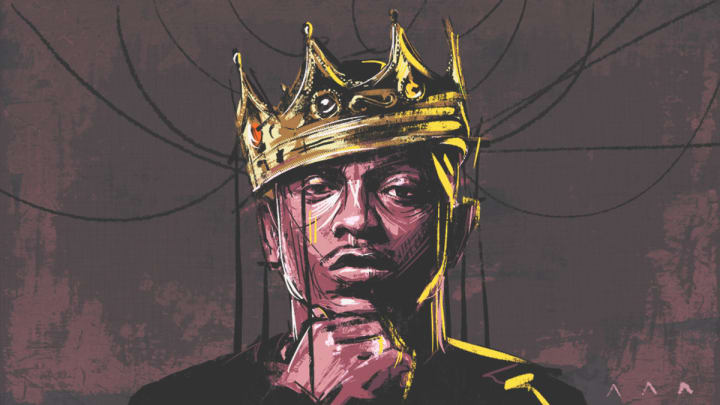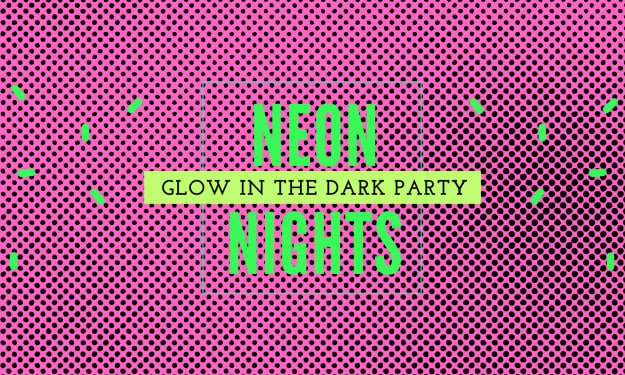
“i” by Kendrick Lamar is a song unlike anything that we have ever heard. In the genre of Rap/Hip-Hop, it set trends that would pave the way for future artists, albums, and tracks through its unique tone and message.
For me, “i” became the anthem to my life as I faced a major crossroads in college. Upon discovering the new track, I had it on repeat day-in and day-out. Before “i” came along, personally I was lacking a lot of confidence and even trust in myself. With the release of “i”, all of that went away; I found I was able to tackle the crossroads ahead and make decisions that were hard, but ultimately paid off.
I write this article because maybe “i” can help you too. If you’ve never heard of it, or you have, let’s explore the song’s significance and in particular the artistry of the greatest rapper alive, Kendrick Lamar.
The Greatest Rapper Alive
“i”’s release on the album To Pimp A Butterfly (TPAB) comes off the success of his second album good kid, m.A.A.d city (GKMC), his initial debut into worldwide fame.
Prior to the GKMC release in October 2012, Kendrick Lamar aka K-Dot was somewhat under the radar and just on the brink of something spectacular. GKMC introduced the rest of the world to the “greatest rapper alive” - a self proclaimed title and one that is upheld by his fans, critics, and myself. That album shook the minds of many as it offered a glimpse into the real world of Compton and gave us an unfiltered account of the constant struggle young black men and women across the United States face on a daily basis: trying to make something of yourself. They face the challenges experienced by every adolescent in the country with the added fear that, unfortunately, each day could be their last.
K-Dot states this concept outright in TPAB’s 3rd single by rapping, “made it past 25 and there I was.”

“Control” - An Iconic Rap Moment of the 21st century.
“i” also comes on the heels of Lamar’s huge risk that ultimately paid off when he called out every single one of his peers in the rap game by name on Big Sean’s track Control ft. Jay Electronica. Lamar makes claims like “I’m trying to make sure your core fans never heard of you niggas.” That type of bravado comes off as a direct contrast to the ending of GKMC where Lamar’s Mom tells him to be a positive source as an example for the kids like him.
“i” serves as a follow-up for both. Kendrick is able to give the kids his Mom talked about a positive message while at the same time being something that is commercial. It illustrates the concept that you are not your environment; just because you’re from somewhere or stuck somewhere, doesn’t mean you need to stay there and continue the cycle. He touches upon this concept heavily in To Pimp A Butterfly and his most recent album, Damn.
While “Control” called out all of Lamar’s peers like A$AP Rocky, Drake, and even Big Sean (who released the song,) the rattling off of names comes immediately after naming those who he deemed untouchable in the rap game, Eminem, Andre 3000, Nas. I see this as a more competitive spirit and tone to bring out the best in people like Drake or Tyler the Creator. Had the next single he dropped been “King Kunta,” a braggadocious rap song about returning home to flex on his successes, the former conclusion about the intentions of that verse would have been much more justified. Instead we get “i,” a self-empowering and uplifting song. With the album version even adding a history lesson.
The self-empowering elements of the song were crucial. When the radio single dropped, I liked it. As a big fan of Kendrick, I listened. I listened again. Then the album version dropped. When something critically acclaimed is released (such as a movie, album, or TV series,) I plan to digest and form my own opinions, not read the critic’s take on it before experiencing it for myself.
And Then Came “i”
That process is how I ended up stopping dead in my tracks on a sidewalk in Muncie, Indiana. I started listening to the album, enamored with each song. The emotions poured into songs like “u” and “These Walls” tore at me. I actively strutted to the song’s like “King Kunta” and “Hood Politics.” All the while fascinated by this message Kendrick kept reading more and more of as the album went on. I knew where “i” was at in the album. I wasn’t too excited for it to be honest. I like the radio version but I had heard it a million times before that and truthfully, I only played the song then because of the pieces of the message being revealed between each track.
I was walking past my favorite spot on campus at the time. At the edge of the Ball State campus there is a tall wooden fence dividing the campus from the community. To further affirm the divide a sign hung every 10 feet or so saying “Private Property: Keep Out.” What I loved about this spot was that there was one spot along that fence where a tree had grown from the private property onto the campus. In the spring, that tree bloomed into a beautiful light purple. It provided shade and for me served as a reminder that we cannot truly control this planet. When “i” came on I looked down at my phone thinking I had accidentally played a different song.
In my defense, I had been listening to an album. The first sounds from this track are the screech of a microphone followed by an MC telling people he needs the mic. I remember slowly coming to the realization that this man just decided to throw a live show in just before the conclusion; just before the finale of the message he’d been building to throughout the entire album. Just before we found out who the letter was read to, what that final lines of it would be ...we get a live concert from Lamar.
The MC finishes calling up Lamar. Backup vocals singing “hey, hey, hey” begin as Lamar imitates the way someone performing would interact with a crowd, telling them all to come to the front. As the live band begins to build in I prepare to rap every word as well as the ad-libs and backup vocals. The song portion of the track ends as a fight breaks out in the crowd. This is where Lamar steps in to bring forth that knowledge his mom urged him to have. He speaks about what he learned in South Africa, how he learned about his heritage and how through the re-teaching of the single most offensive word in history he will raise his community. The linguistic teaching breaks down to that the word derives from “negus” and actually means royalty. The more Lamar speaks the quieter the crowd gets simulating their attentiveness to his message.
The origin of the message Lamar speaks to the crowd comes from the song before it on the album, “How Much a Dolla Cost.” It is the climax of the album. The big theme of the album is Lamar trying to find himself in a world very foreign to him. Since his last album, he has garnered a lot of fame and success. Lamar has stated in interviews how crazy the life of a celebrity is where you can have anything you want at the drop of a hat, especially for someone coming from little to nothing it can be impossible to navigate that terrain successfully. There are countless cautionary tales of people who come from Lamar’s exact situation and couldn’t handle it.
“i” is unlike a lot of commercial hip-hop, especially at the time it was released. It drives its worth not from bringing others down, but preaches the positivity each of us need in our lives. A lot of music in this genre centers around flexing in some way, shape or form. Typically, it is boasting about physical attractiveness, ability to commit violent acts, how much wealth they have versus how little you have, or sexual feats.
“i” says how great Kendrick is without diminishing those around him, or bringing others down. To the listener, the song’s positivity is relatable to anyone and everyone. Anyone who listens to the track can pull lines out and speak them back to themselves. It is in its vagueness, it finds so much power.

Navigating Through The Crossroads
When this song came out, I was in college – in a major I was becoming less and less invested in that was affecting my self-worth. I was contemplating switching majors or dropping out. Each of which were terrifying for me as I would have to tell my friends and family. I viewed making that switch as a mark of failure.
“i” gave me the strength to make a change that, at the time seemed odd, but ended up putting me on the track to where I am today. I ended up taking a semester off, moved to Florida and worked as a bike taxi for about four months. During that time, I met many interesting people, and through meeting so many people learned what my passion was and how I wanted my life going forward: Journalism.
The song pushed me to make a decision many told me was wrong and put my trajectory on hold. At the time, I was scared it wouldn’t work out or that I would live with that regret, but fortune favors the bold and this song made me bold. It made me into the person I am today. It pushed me onto a bike in Florida where I would learn that what I loved was getting to talk to people and find out about them. It taught me that when I find that ‘thing’ someone is passionate about, they glow and shine and start talking fast. It pushed me into writing for people to see when I got back to school. It made me confident taking on challenges and eventually pushed me to New York City.
I owe so much of where I am to this song.
About the Creator
Tyler Walker
In NYC working at Better.com. Ball State University Grad. Have previously lived in Minnesota, Indiana, Florida, and Arizona. Sometimes I play quidditch. Always looking for new adventures and never trying to do the same thing twice.






Comments
There are no comments for this story
Be the first to respond and start the conversation.